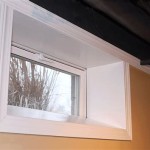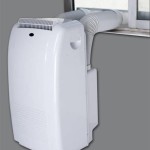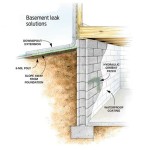Moisture Barrier for Concrete Basement Floors: Essential Aspects
Concrete basements are susceptible to moisture penetration, which can lead to an array of problems, including mold growth, structural damage, and health hazards. To combat this, a moisture barrier is essential in protecting the concrete and creating a healthier living environment. Here are the key aspects to consider:
Types of Moisture Barriers
There are several types of moisture barriers available, each with its advantages and disadvantages:
* Liquid-applied membranes: These are applied to the concrete surface and form a continuous, watertight seal. * Sheet membranes: Made from polymers or rubber, these are installed over the concrete with seams that are sealed together. * Vapor barriers: These are usually installed under the concrete slab to prevent moisture from rising up through the ground.Benefits of a Moisture Barrier
A moisture barrier provides numerous benefits, including:
* Prevents mold and mildew growth * Protects against moisture-related damage to the concrete and surrounding materials * Improves indoor air quality by eliminating musty odors and pollutants * Increases the lifespan of the basement * Enhances the comfort and livability of the spaceFactors to Consider When Choosing a Moisture Barrier
When selecting a moisture barrier, consider the following factors:
* Moisture level: Determine the severity of the moisture problem to choose the appropriate type of barrier. * Basement usage: Different uses may require specific moisture protection measures. * Cost: Moisture barriers range in cost, so establish a budget before purchasing. * Installation complexity: Some barriers are easier to install than others, so consider the cost and effort involved.Installation and Maintenance
Proper installation and maintenance are crucial for the effectiveness of a moisture barrier:
* Installation: Follow the manufacturer's instructions carefully to ensure a watertight seal. * Maintenance: Regularly inspect the barrier for damage or signs of moisture penetration. Make repairs promptly.Additional Considerations
In addition to a moisture barrier, consider these additional measures to enhance basement moisture control:
* Grading and drainage: Ensure proper grading around the house to divert water away from the foundation. * Dehumidification: Use a dehumidifier to control indoor humidity, reducing the risk of condensation. * Vapor barriers in walls: Install vapor barriers in basement walls to prevent moisture from entering through the walls.By understanding these essential aspects of moisture barriers for concrete basement floors, you can effectively protect your home from moisture damage, improve indoor air quality, and create a healthier and more comfortable living environment.

Underslab Retrofits Sealing Slabs Waterproof Magazine

Moisture Barrier Why Do You Need A

How To Install The Moisture Barrier Over Concrete Subfloor Furniture Woodworking Wonderhowto

Underslab Retrofits Sealing Slabs Waterproof Magazine

Westcoat S New Moisture Vapor Barrier Ec 15 Specialty Coating Systems
Is It Necessary To Have A Moisture Barrier Poly Between Basement Concrete Floor And Wood Flooring Quora

Our Complete Crawl Space Vapor Barrier System

Vapor Barrier For A Basement Floor Options Installation And Cost

Thermaldry Basement Flooring Systems Waterproof

What Is A Vapor Barrier Paveman Coatings
See Also








